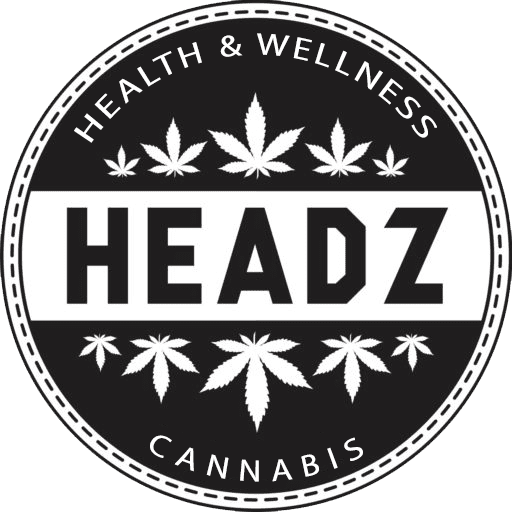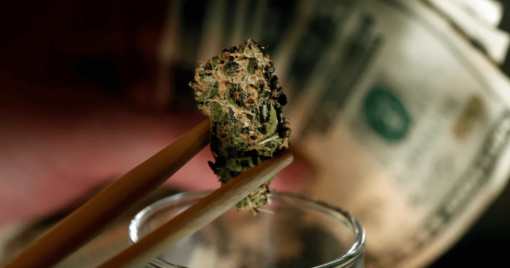Despite all of the hype and misinformation, cannabis (a.k.a. marijuana, or
Cannabis sativa), has a proven medical use. And within cannabis are certain compounds of medical significance, chief of which is cannabidiol, or CBD. However, while CBD has been proved to help treat certain issues, it’s not without certain risks as well. In addition, while cannabis
is legal in Canada, it’s
not legal in the United States… yet. Read our latest Headz blog for answers to frequently asked questions about the medical use of cannabinoids or CBD, including what it helps, how it works, side effects and risks.
1) What is CBD?
There are over 110 compounds found in cannabis that belong to the class of substances known as cannabinoids. The most (in)famous of these is THC (tetrahydrocannabinol). This is what produces the mind-altering effects of cannabis. However, CBD is also present, and in a high concentration, and it has multiple medical benefits. We list the specific
CBD medical benefits within the description of each product in our
shop.
2) How is CBD used?
Normally, CBD is applied as an oil, see the
Topicals section of our online shop for common uses. As it isn’t psychoactive, it doesn’t produce mind-altering effects in the user. That said, it does trigger changes in the human body, many of which are medically beneficial. CBD is normally extracted from hemp, which is the basic form of the marijuana plant. Unlike the marijuana grown for its psychoactive, hemp is normally very low in THC.
3) How does CBD work?
CBD oil heals a variety of ailments
All cannabinoids attach themselves to receptors in the human body in order to produce their effects. There are two receptors able to accept cannabinoids found in the body—CB1 and CB2. These receptors accept the cannabinoids created by the body itself (this is known as the endocannabinoid system or ECS). CB1 receptors specifically deal with the body’s ability to move, hand-eye coordination, the ability to feel pain, to think, to expression emotions, your general mood, and how hungry you are. THC attaches to these receptors, resulting in the effects mostly commonly associated with smoking marijuana.
CB2 receptors are commonly found in the immune system, where they deal with inflammation and pain.
CBD doesn’t attach itself to either receptor, but instead appears to cause the body to use and produce its own natural cannabinoids.
4) What does it do?
Cannabinoids have a variety of medical benefits. Specifically:
A) Pain Relief
Marijuana has been used to relieve pain for years. CBD, specifically, appears to help reduce chronic pain by interacting with CB1 (or endocannabinoid) receptors, which in turn reduce inflammation and work with neurotransmitters to reduce or remove sensations of pain. Studies have shown that CBD and THC can be used to reduce the pain associated with multiple sclerosis, allowing for the ability to walk free and freedom from muscle spasms. CBD and THC has also been shown to assist with rheumatoid arthritis, reducing pain caused by movement, while resting, and while sleeping.
B) Antipsychotic Effects
Another benefit of CBD is psychological. CBD works as an anti-psychotic, preventing psychosis and having positive effects on those suffering from schizophrenia.
C) Reduction in Anxiety and Depression
CBD oils have been shown to treat anxiety and depression. Tests indicate recipients of CBD show anxiety when preparing for something stressful (such as public speaking), as well as reduced cognitive impairment and overall discomfort. Further uses include helping treat social anxiety disorders, and may help with panic disorders, obsessive compulsive disorder (OCD), and post-traumatic stress disorder (PTDS). In addition, CBD oils have also been used to treat insomnia. Finally, CBD has shown antidepressant-like effects. All of this seems to come from the CND’s ability to stimulate the brain reception of serotonin, a neurotransmitter that regulates mood and social behavior.
D) Helps With Cancer-Related Symptoms
A combination of CBD and THC helps cancer patients deal with cancer-related pain, as well as nausea and vomiting from the pain associated with chemotherapy treatments. Certain tests indicate that CBD
may have anti-cancer properties, inhibiting or destroying cancer cells. However, these tests are limited in scope and require further research.
E) Relieves Nausea
Even among non-cancer patients, CBD has been shown to reduce nausea and vomiting. However, this is only in small doses. In high doses, it can induce or increase nausea or has little to no effect.
F) Reduces Acne
Acne affects about 9% of the population (not just teens) and has many causes, including bacteria, genetics, inflammation, and the overproduction of sebum, and oily substance produced by sebaceous glands found in skin. CBD, due to its anti-inflammatory properties has been shown to reduce sebum production and prevent the creation of acne-causing agents. While these results are encouraging, more testing is needed.
G) Reduction of Seizures and Similar Disorders
Animal studies and tests have shown the CBD oils can have a positive effect when it comes to treating epilepsy-based seizures. For example, a study of children suffering from epilepsy showed that use of CBD reduced seizure frequency in 84% of the children tested. This reduction ranged from complete freedom from seizures to a 25-60% reduction. In addition, CBD users also reported increased alertness and improved sleeping habits, however, side effects included reports of drowsiness and fatigue.
H) Other Benefits
CBD has been shown to assist with Alzheimer’s disease and type 1 diabetes as well as other medical issues. Obviously, more testing and research is needed to unlock the full potential of CBD.
5) Any side effects of CBD?
Use of CBD has not shown to cause any issues with the central nervous system or other effects on the body’s vital signs. Users most commonly report tiredness as a side effect. Others have reported instances of diarrhea, changes in appetite, or changes in weight.
6) Risks?
As of the end of 2018, there are no long-term safety data relating to the medical use of CBD. Before using CBD, you should consult a qualified healthcare practitioner. As a final note, the United States Food and Drug Administration (FDA) has
not approved using CBD to treat any medical condition.

